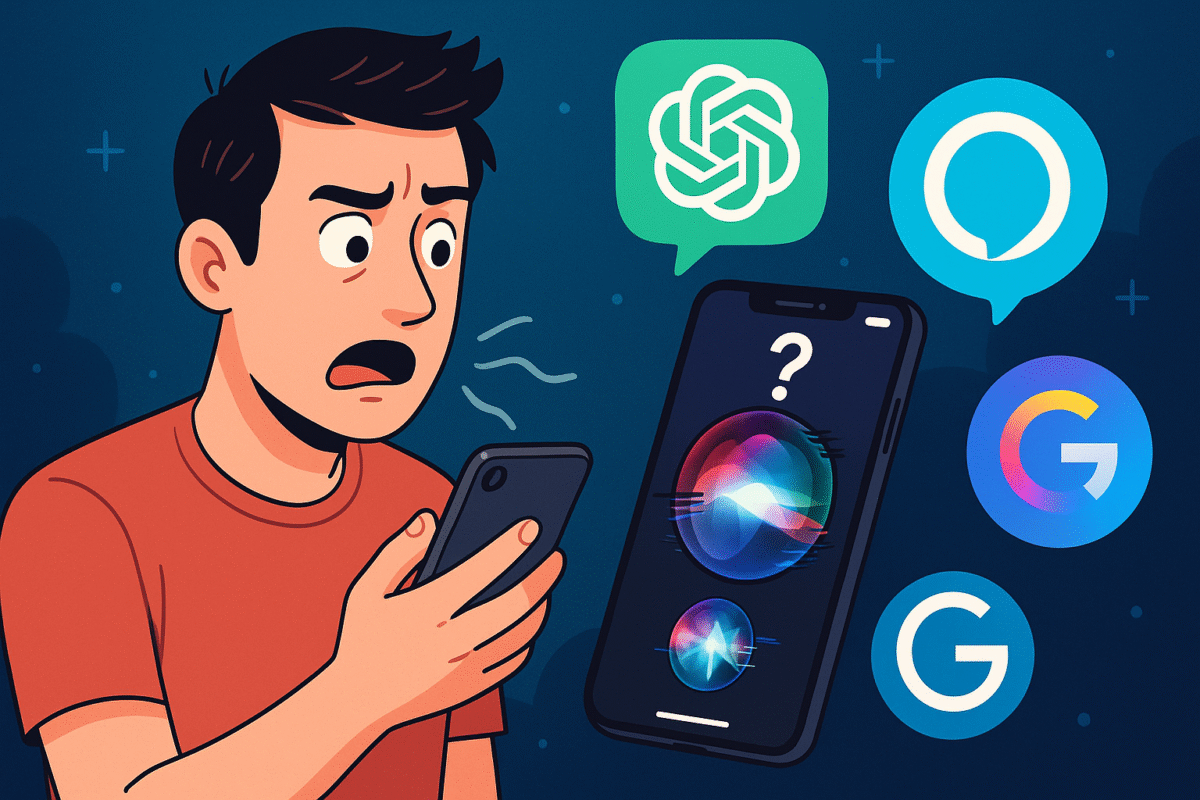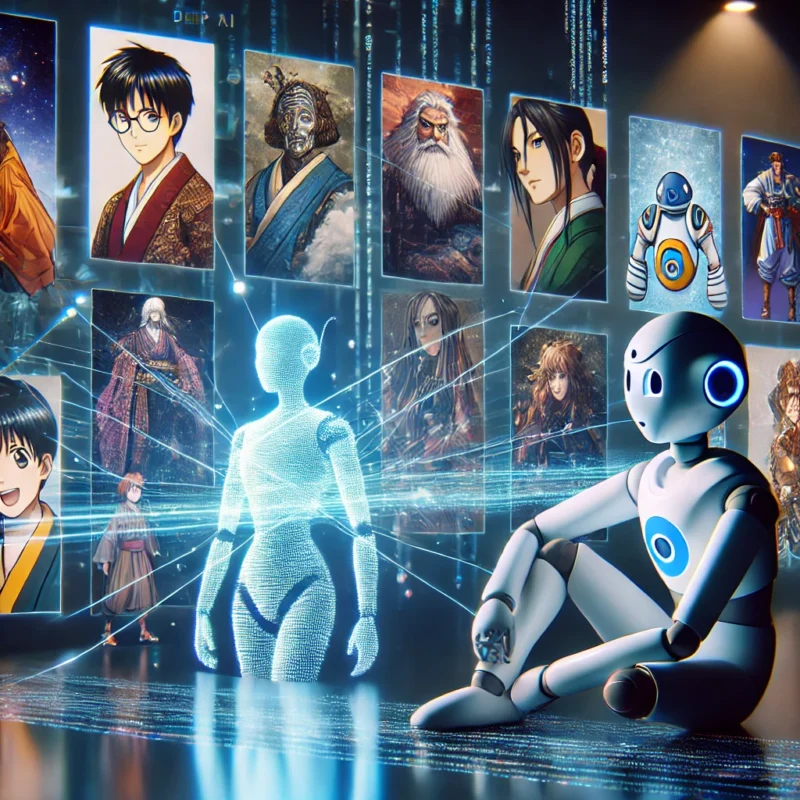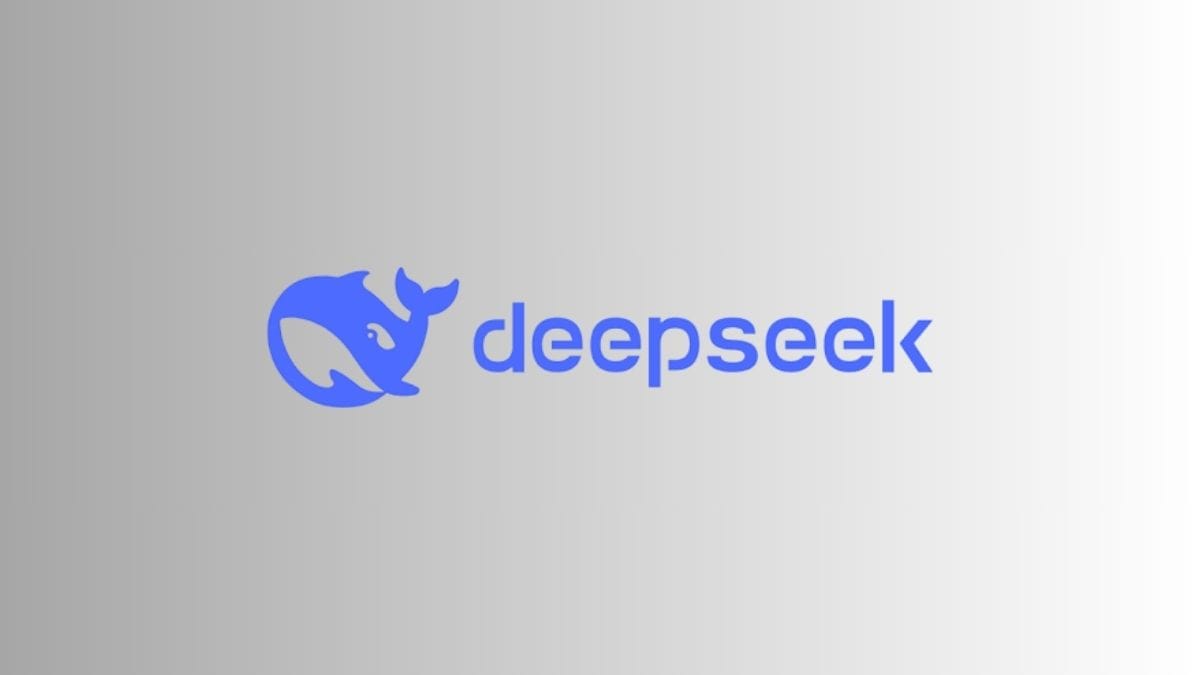Remember When Siri Was Magic? Now It’s a Punchline.
In 2011, Steve Jobs took the stage and showed off the future: “What’s the weather like today, Siri?” With a cheerful chime, the iPhone spoke back. You didn’t have to type—you could just ask. The world was dazzled. This was Apple’s moonshot: a digital butler living in your pocket. “Siri” was smart, sassy, and a symbol of how Apple turned sci-fi into reality.
Fast-forward 15 years.
Ask most iPhone users what they think of Siri, and you’re more likely to get a meme than a marvel. Siri is the butt of tech jokes, lampooned in pop culture, and famous for misunderstanding the simplest requests. How did Apple’s most hyped innovation become the slowest kid in the AI class—especially now, when ChatGPT, Gemini, and Alexa are rewriting what artificial intelligence can do?
This is the story of how Siri fell behind—and whether Apple can ever catch up.
The Promise: Siri’s Revolutionary Debut
Back in 2011, voice assistants weren’t just new; they were magical.
Siri was a moonshot project—Steve Jobs himself had seen the technology demoed as a separate app, and he “was just kind of blown away by what Siri could do.” It was billed as a breakthrough feature for the iPhone: the first time you could talk to your phone, and it would (sort of) talk back.
Siri could check the weather, send a message, schedule a reminder, and even crack a joke. It wasn’t perfect, but it was first—and Apple quickly made “voice-first” computing central to its vision for the iPhone and the future of tech.
The Reality: 15 Years of Frustration
Yet as the years ticked by, Siri didn’t get much smarter.
It misheard requests, stumbled on context, and delivered results that were often off-base—or just wrong. Try asking Siri to play a certain song, find a little-known restaurant, or set up a complex calendar event, and you’re as likely to get “Here’s what I found on the web” as a real answer.
While Apple continued to hype each “new and improved” Siri, user experience lagged.
Critics and loyal fans alike noticed the gap between the original promise and everyday reality. A once-magical feature became an everyday frustration. Instead of wowing, Siri often underwhelmed.
How ChatGPT, Gemini, and Alexa Left Siri in the Dust
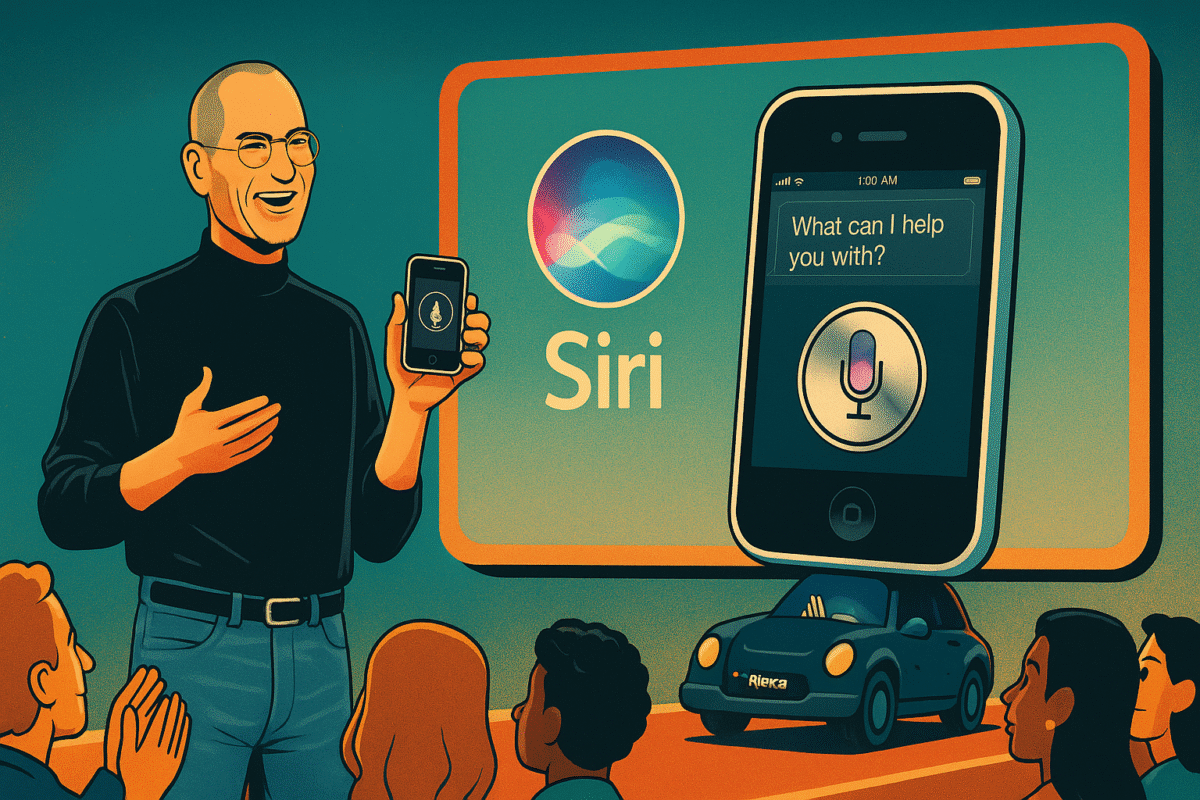
Then, in late 2022, OpenAI released ChatGPT.
The world saw what real AI conversation could be: nuanced, context-aware, and surprisingly human. Google’s Gemini and Amazon’s Alexa (powered by ever-advancing large language models, or LLMs) raised the bar even higher. Microsoft’s Copilot brought generative AI right into Windows, search, and productivity tools.
Suddenly, Apple’s Siri looked like a relic.
- ChatGPT could explain, summarize, compose emails, write code, and answer complex questions.
- Alexa could control your smart home, hold a conversation, and follow multi-step commands.
- Siri still… set timers. Badly.
While rivals raced to integrate generative AI into everything, Apple’s progress seemed frozen in time. The “Apple Intelligence” and new Siri promised at WWDC were delayed or under-delivered. Tech journalists and users began to wonder: What happened to the world’s smartest company?
Why Did Apple Fall Behind? (Culture, Privacy, Slow Innovation)
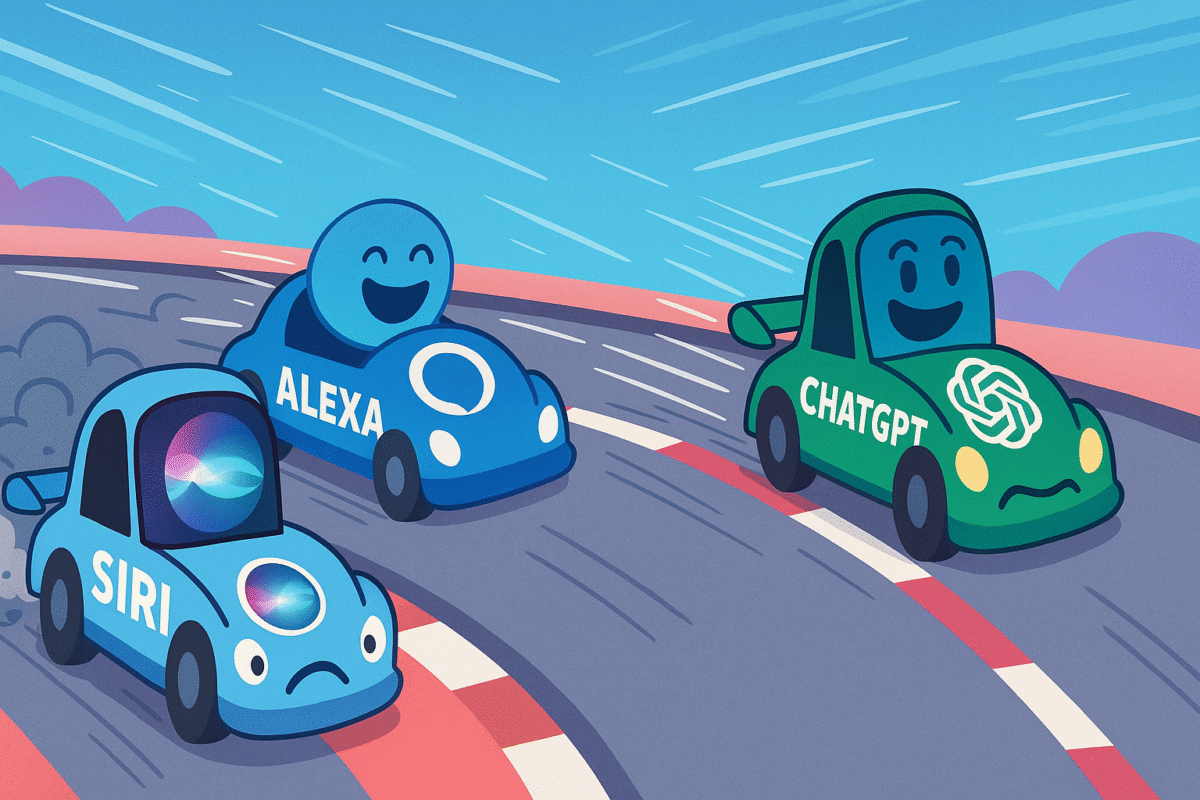
Apple’s struggles aren’t due to lack of money or talent. The reasons are more nuanced—and tied to Apple’s DNA.
1. Culture of Caution
Apple’s philosophy is famously “It just works.” But for Siri, that meant prioritizing reliability and risk-aversion over rapid innovation. Each update went through layers of secrecy and QA. Where competitors embraced “move fast and break things,” Apple moved slow and fixed nothing.
2. Privacy Over Progress
Apple makes privacy a selling point—unlike Google or Amazon, it refuses to send most user voice data to the cloud for AI training. Siri’s processing is mostly on-device, protecting your information but making it harder for Apple to use real-world data to “teach” Siri to improve.
3. Underpowered Tech
Large language models like GPT-4 require huge datasets and cloud compute to get truly smart. Apple’s walled garden means Siri was stuck with smaller models, less learning, and fewer updates.
4. Missed Opportunities
Many promised features never appeared. The “next-gen” Siri, announced with fanfare, was repeatedly delayed. Features like deeper app integration, multi-step reasoning, and context memory were slow (or failed) to arrive.
The Social Media Roast: Public Frustration with Siri
Siri’s flaws aren’t just technical—they’re cultural.
- Memes and jokes: “Hey Siri, set a timer for 10 minutes”—Siri: “Here’s a podcast about timers.”
- Viral videos: Users filming Siri’s bizarre mistakes rack up millions of views.
- Tech reviewers: Consistently rank Siri below Alexa, Google Assistant, and now ChatGPT for accuracy, flexibility, and real-world usefulness.
Even loyal Apple fans admit: When they want real AI, they turn to third-party apps.
What (If Anything) Is Apple Doing to Catch Up?
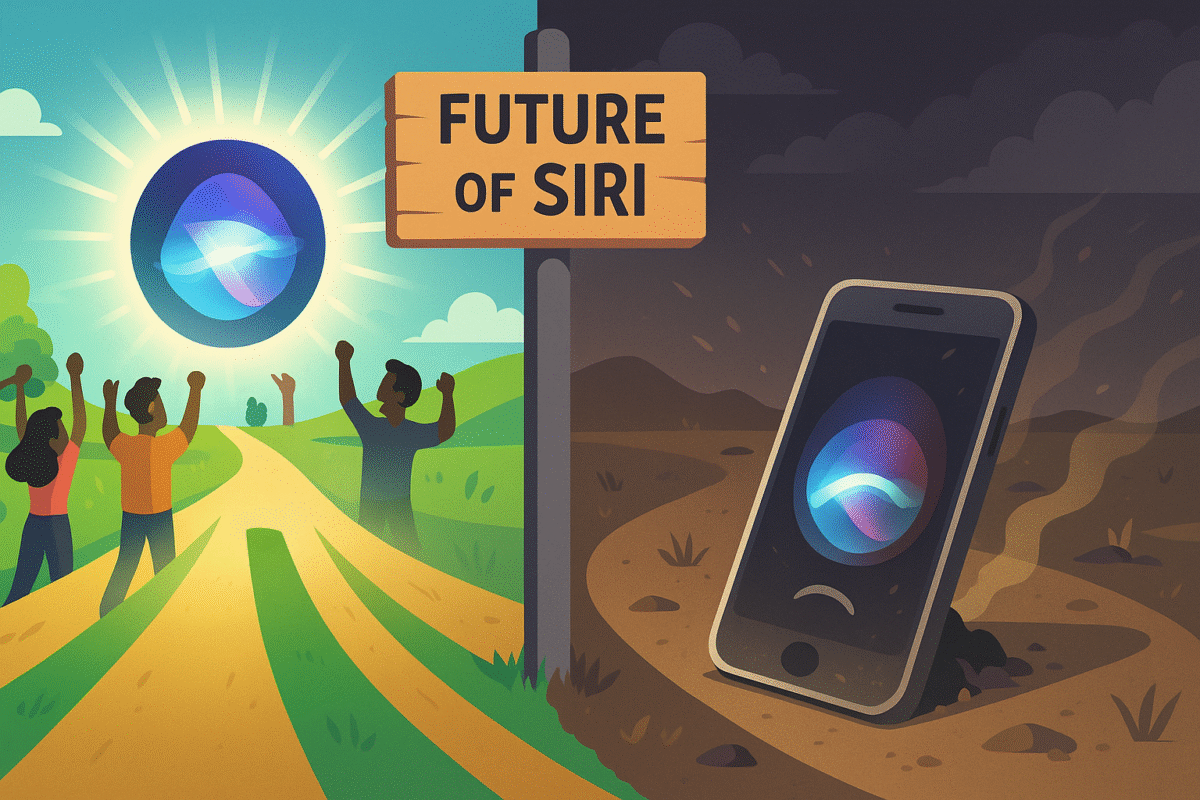
Apple isn’t ignoring the problem. Behind the scenes, the company is:
- Hiring top AI researchers (often poaching from Google, Microsoft, and OpenAI).
- Investing billions in data centers and custom chips to run larger models securely.
- Promising “Apple Intelligence”—a suite of smarter, context-aware features that should, eventually, make Siri competitive.
The company’s WWDC presentations have teased a new era for Siri, but delays and slow rollouts mean many users are still waiting.
Will it work? That’s the billion-dollar question.
Apple’s privacy stance remains strong, and the company may never match the raw “brainpower” of ChatGPT. But its focus on reliability and ecosystem integration could give Siri an edge—if Apple can finally deliver.
Can Siri Ever Be Saved?
It’s not too late.
- Apple’s strengths—hardware-software integration, user trust, and a huge installed base—give it the resources to compete.
- If Apple can blend its privacy ethos with smarter, more flexible AI, Siri could finally shed its reputation as “the dumbest smart assistant.”
But the clock is ticking.
Every month, more users try ChatGPT, Copilot, or Gemini—and expect that level of intelligence everywhere. If Apple can’t deliver soon, Siri’s fate as a “has-been” could be sealed.
Conclusion: The Future of Voice, AI, and Apple’s Biggest Test
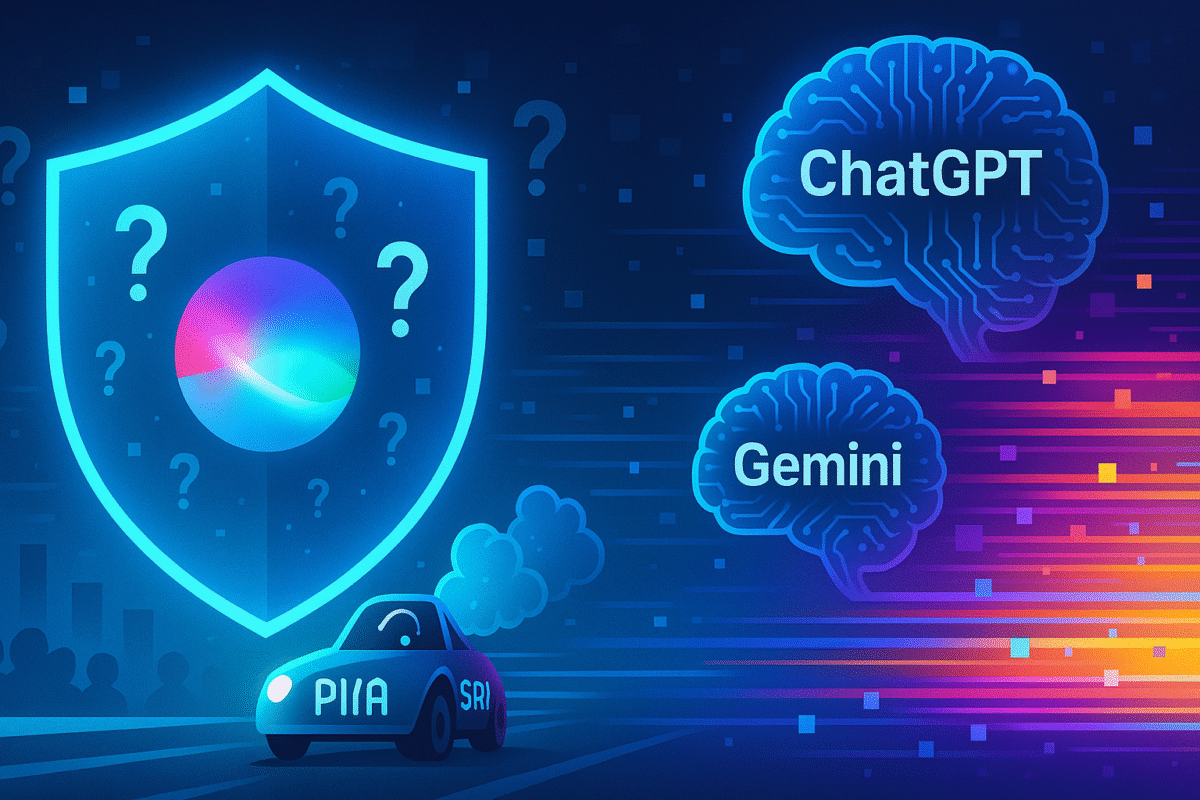
Siri’s story is a cautionary tale. First isn’t always best, and innovation—if left to gather dust—can become an embarrassment. In the age of generative AI, user expectations have shifted: assistants must not only hear you, but understand and help you, almost like a human.
Apple now faces its biggest test in a decade.
Will Siri remain a punchline—or will Apple finally turn its first moonshot into a truly smart assistant, worthy of the iPhone’s legacy?
For now, one thing is certain: In the age of ChatGPT, Alexa, and Gemini, the world is watching—and waiting—for Apple’s next move.
People also search for:
- Why is Siri not using ChatGPt?
- Why is Siri a weak AI?
- Is Chat GPT better than SIri?
- Will Siri be replaced with AI?
